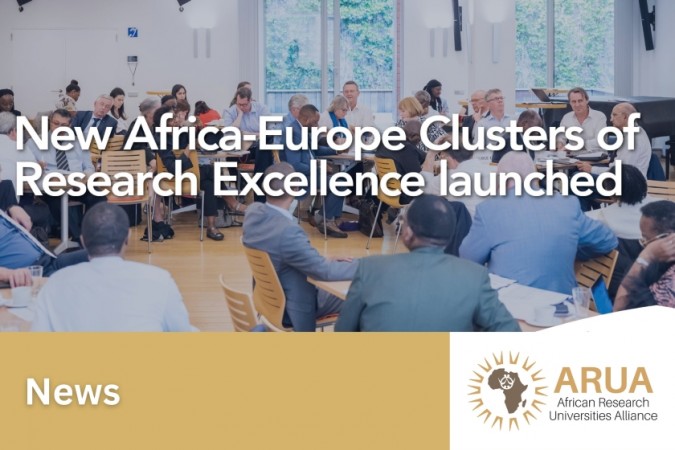
In a significant stride towards strengthening research collaboration between Africa and Europe, the African Research Universities Alliance (ARUA) and The Guild of European Research-Intensive Universities (The Guild) have unveiled the establishment of three cutting-edge Africa-Europe Clusters of Research Excellence (CoRE).
These groundbreaking initiatives bring the total number of Clusters to 20, uniting over 250 researchers from 60 esteemed universities and research institutions spanning both continents. Their collaborative endeavours are set to propel scientific excellence while fostering equitable research partnerships, benefiting students, economies, and policymaking on a global scale.
This expansion initiative directly aligns with the AU-EU Innovation Agenda, recognizing the pivotal role of research and education in realizing both the EU's Global Gateway strategy and the AU's ambitious Agenda 2063.
The first of these clusters, titled 'Creative Economies: Cultures, Innovation, and Sustainability,' embarks on nurturing more equitable, innovative, and sustainable creative economies. Notably, this sector holds the potential to contribute up to 10% of global GDP by 2030. Duro Oni (University of Lagos), Jen Snowball (Rhodes University), Roberta Comunian and Eka Ikpe (King’s College London) lead this transformative Cluster, convening cultural policy organizations and university researchers from both Africa and Europe.
The second CoRE, 'Engineering for the Future,' co-led by Wynand Stein (University of Pretoria) and Barbara Shollock (King’s College London), aspires to establish an engineering teaching and research ecosystem. This ecosystem aims to train future engineers to confront complex challenges, including climate change and food security. This initiative closely aligns with the African Union's Agenda 2063 and significantly emphasises collaboration with governments and industries.
The third CoRE, 'Politics of Sustainable Development: Squaring the Circle of Science and Democracy,' delves into the intricate relationship between politics and sustainable development. This multidisciplinary initiative involves researchers from various fields, including social sciences, humanities, natural sciences, and law. Together, they will explore how politics influences sustainable development decisions and discourse. Heide Hackmann (University of Pretoria) and Dan Banik (University of Oslo) lead this transformative CoRE, which will also pioneer innovative PhD programs focusing on leadership for sustainable societal transformation.
Ernest Aryeetey, representing ARUA, underscored the diversified portfolio of academic disciplines that these clusters bring together. He emphasized the institutions' readiness to employ creativity and innovation in tackling global challenges. Jan Palmowski from The Guild highlighted the importance of addressing common challenges through genuine partnerships between Europeans and Africans.
These newly established CoREs stand poised to propel academic innovation, foster deeper collaboration, and pave the way for a brighter, shared future between Africa and Europe. They signify a remarkable commitment to advancing research excellence and nurturing equitable global partnerships.
Article by Jed Mwangi
Photo/ARUA
https://arua.org.za/new-africa-europe-clusters-of-research-excellence-launched/

Comment